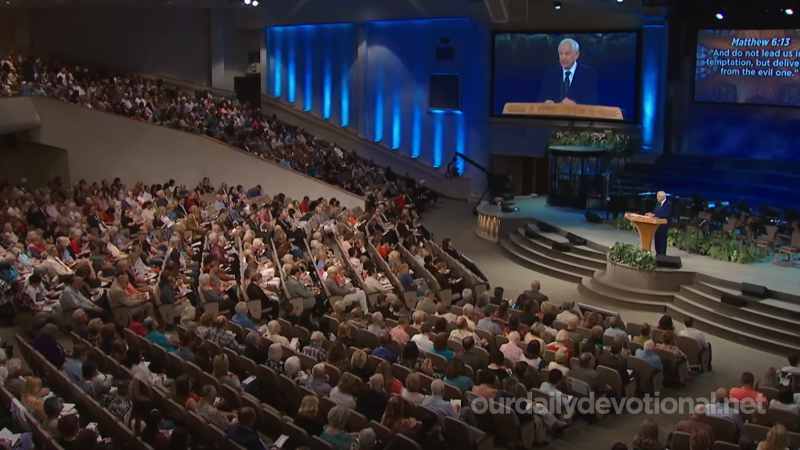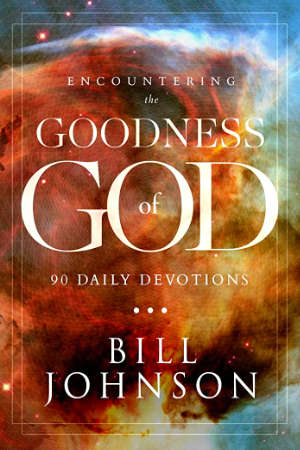
God Has Not Forsaken You! | Sermon by Dr. David Jeremiah
Great is Thy Faithfulness. There is one attribute of God that falls like the morning dew on Jeremiah's tortured brow. He writes, 'This I recall to my mind; therefore, I have hope.
Through the Lord's mercies, we are not consumed because His compassions fail not. They are new every morning. Great is Your faithfulness.' That great song we sing didn't come on a mountaintop experience when all was well. It came in the midst of the darkest night of Jeremiah's soul.
When you read Lamentations 3, you wonder if there are some missing verses because, all of a sudden, you get to verse 21, and Jeremiah seems to switch from pain to praise on a dime. Did someone find this manuscript and cut out some verses? No, I don't think that's what happened. Jeremiah did what every believer must do if we're going to encourage ourselves in times of difficulty.
We stop listening to ourselves, and we start talking to ourselves. 'This I recall,' he said. 'This I recall to my mind.' We have to learn even in the midst of life's most painful situations to bring something to mind. We have to remind ourselves of God's unchanging, overarching, undergirding faithfulness.
We have to remember God's continual compassions which are new every morning. Now, I love this hymn based on this passage, 'Great is Thy Faithfulness,' but the author of the hymn, Thomas Chisholm, made one slight mistake.
The hymn says, 'Morning by morning, new mercies I see.' But that's not what Jeremiah said. Jeremiah did not see any visible morning mercies when he wrote Lamentations 3. At that moment, he had no visible evidence of God's mercy at all.
Morning by morning brought nothing but pain and dread. But Jeremiah said, in effect, even if I don't see any tangible blessings right now, that does not alter God's mercy, God's compassion, God's faithfulness, whether I can see them or not. God's mercy is continual.
He is my portion; therefore, I hope in Him. Faithfulness isn't just a quaint morality or an old-fashioned virtue. It's the core of integrity. It's the glue that holds our culture together. Without faithfulness, relationships can't survive, and society can't function. It is essential to life on this Earth.
In other words, without the faithfulness of God, for example, the universe would be erratic and unpredictable. The planets would wobble in their orbits, and the laws of nature would be unreliable. The sun would shine when it felt like it, and when it didn't, it wouldn't. Without the faithfulness of God, there would be no stability in the universe at all. Did you know the Bible says in Colossians 1:17 that through Jesus Christ, He is before all things, and in Him, all things hold together?
Psalm 89:2 actually says that God's faithfulness is established in the very heavens. And in Genesis, we have one of the great promises that, to me, is the great illustration of the faithfulness of God.
God promised after the flood, 'While the Earth remains, seedtime and harvest, cold and heat, winter and summer, and day and night shall not cease.' You know what? Since He made that promise, we've had seedtime and harvest every year, cold and heat every day, winter and summer every year, and day and night.
Never once has it failed. Behind the stability of nature is the consistency of God, and it's a source of great thanksgiving for all of us. In the hymn that's written about the faithfulness of God, there's a verse that goes like this: 'Summer and winter and springtime and harvest, sun, moon, and stars in their courses above, join with all nature in manifold witness to thy great faithfulness, mercy, and love.' I came here to tell you that our God can be always trusted, eternally trusted. He never forgets, never falters, never fails.
David Jeremiah
David Jeremiah is a evangelical Christian leader, founder of Turning Point Radio and Television Ministries and senior pastor of Shadow Mountain Community Church, a Southern Baptist megachurch in El Cajon, California, a suburb of San Diego.






